Philip Alford (School of Tourism) and Mark Dover (Applied Sciences) put a consortium together and submitted an application to the EU FP7 program. The project title was Cloud Information Retrieval and Re-Use System and the bid was for nearly €4 million. The following summarises the project:
Tourism indirectly generates more than 10% of the European Union’s GDP and Tourism sector comprises SMEs employing less than 50 people Their respective diversity and fragmentation means that individual SMEs, and their often localised associations, lack the resources to generate and define sophisticated, sustainable marketing tools enabling the competitive campaigns required to maintain position and growth. The recent expansions in social networking and advances in Cloud Computing technologies and infrastructure now present an opportunity to develop sophisticated, dynamic, promotion and marketing tools for use by any SME, in any context – without any requirement for end-user knowledge of the configuration of the service delivery. CIRRUS is thus designed to develop such a universally functional framework, employing a suite of tools, supporting a simplistic dashboard interface, to enable sophisticated, dynamic, marketing input and provision of services at the individual, non expert, level across the many different sectors of the European tourism industry. CIRRUS will
1. Develop a novel, simplistic, non-expert dashboard interface to cloud content and usage enabling incorporation into web and marketing media.
2. Build a support framework behind the dashboard for tourism SMEs which embraces the new marketing paradigm of online customer-to-customer marketing and which is based on international best practice.
3. Conduct 4 Validation Case Studies from 3 European Countries, and different tourism perspectives (accommodation, attractions and events), illustrating enhanced business performance through CIRRUS use.
4. Build and adapt, through these case studies, the application and facilitate its deployment in the targeted countries.
5. Position the application for deployment, with input from both SMEs and SME-AGs, in member states beyond those immediately involved in the partnership.
We were unsuccessful with the application but got some useful feedback from the EU. In summary we needed to:
- More fully describe the limitations of the current state of the art technology in tourism
- Make the interdependencies of the work packages clearer
- More adequately demonstrate the partners’ expertise in key areas
- Improve the dissemination activities which are described but are not particularly targeted
- Provide more detail on the exploitation plans of the SME partners
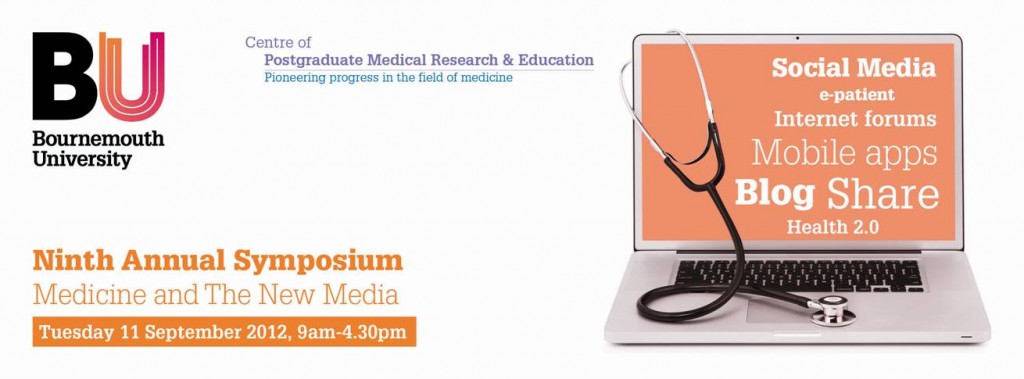 The Centre of Postgraduate Medical Research and Education (CoPMRE) would like to invite you to its annual symposium. The aim of this exciting symposium is to raise awareness on the range and use of the new media platforms in the medical field. The conference is free and is suitable for clinicians, academics, healthcare professionals and industry people (Pharma and Medical Device) with an interest in medical research and education. Don’t miss on a great opportunity for networking and collaboration .
The Centre of Postgraduate Medical Research and Education (CoPMRE) would like to invite you to its annual symposium. The aim of this exciting symposium is to raise awareness on the range and use of the new media platforms in the medical field. The conference is free and is suitable for clinicians, academics, healthcare professionals and industry people (Pharma and Medical Device) with an interest in medical research and education. Don’t miss on a great opportunity for networking and collaboration .

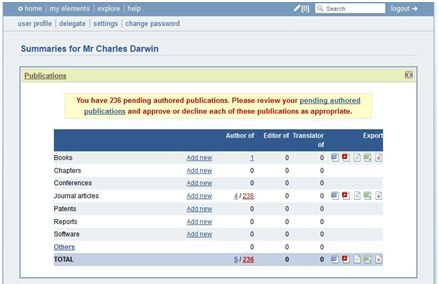



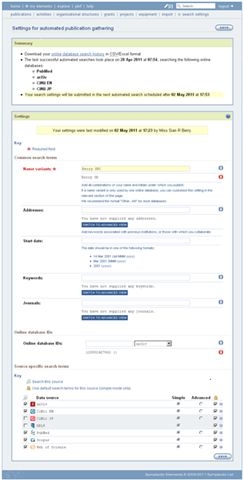




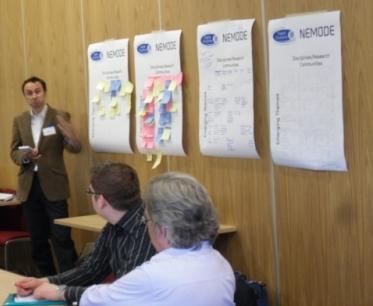 Academics from multi-disciplinary backgrounds recently attended a two day Digital Economy Network+ event at the University of Cambridge. The aim of the event was to continue the process of building a network of people interested researching New Economic Models for the Digital Economy.
Academics from multi-disciplinary backgrounds recently attended a two day Digital Economy Network+ event at the University of Cambridge. The aim of the event was to continue the process of building a network of people interested researching New Economic Models for the Digital Economy.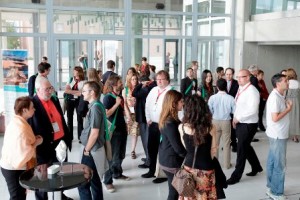











 Missing Persons Indicator Project Recruitment
Missing Persons Indicator Project Recruitment Celebrating our Research: Postgraduate Research Showcase 2026
Celebrating our Research: Postgraduate Research Showcase 2026 Nursing Research REF Impact in Nepal
Nursing Research REF Impact in Nepal Fourth INRC Symposium: From Clinical Applications to Neuro-Inspired Computation
Fourth INRC Symposium: From Clinical Applications to Neuro-Inspired Computation ESRC Festival of Social Science 2025 – Reflecting back and looking ahead to 2026
ESRC Festival of Social Science 2025 – Reflecting back and looking ahead to 2026 3C Event: Research Culture, Community & Cookies – Tuesday 13 January 10-11am
3C Event: Research Culture, Community & Cookies – Tuesday 13 January 10-11am ECR Funding Open Call: Research Culture & Community Grant – Application Deadline Friday 12 December
ECR Funding Open Call: Research Culture & Community Grant – Application Deadline Friday 12 December MSCA Postdoctoral Fellowships 2025 Call
MSCA Postdoctoral Fellowships 2025 Call ERC Advanced Grant 2025 Webinar
ERC Advanced Grant 2025 Webinar Horizon Europe Work Programme 2025 Published
Horizon Europe Work Programme 2025 Published Update on UKRO services
Update on UKRO services European research project exploring use of ‘virtual twins’ to better manage metabolic associated fatty liver disease
European research project exploring use of ‘virtual twins’ to better manage metabolic associated fatty liver disease